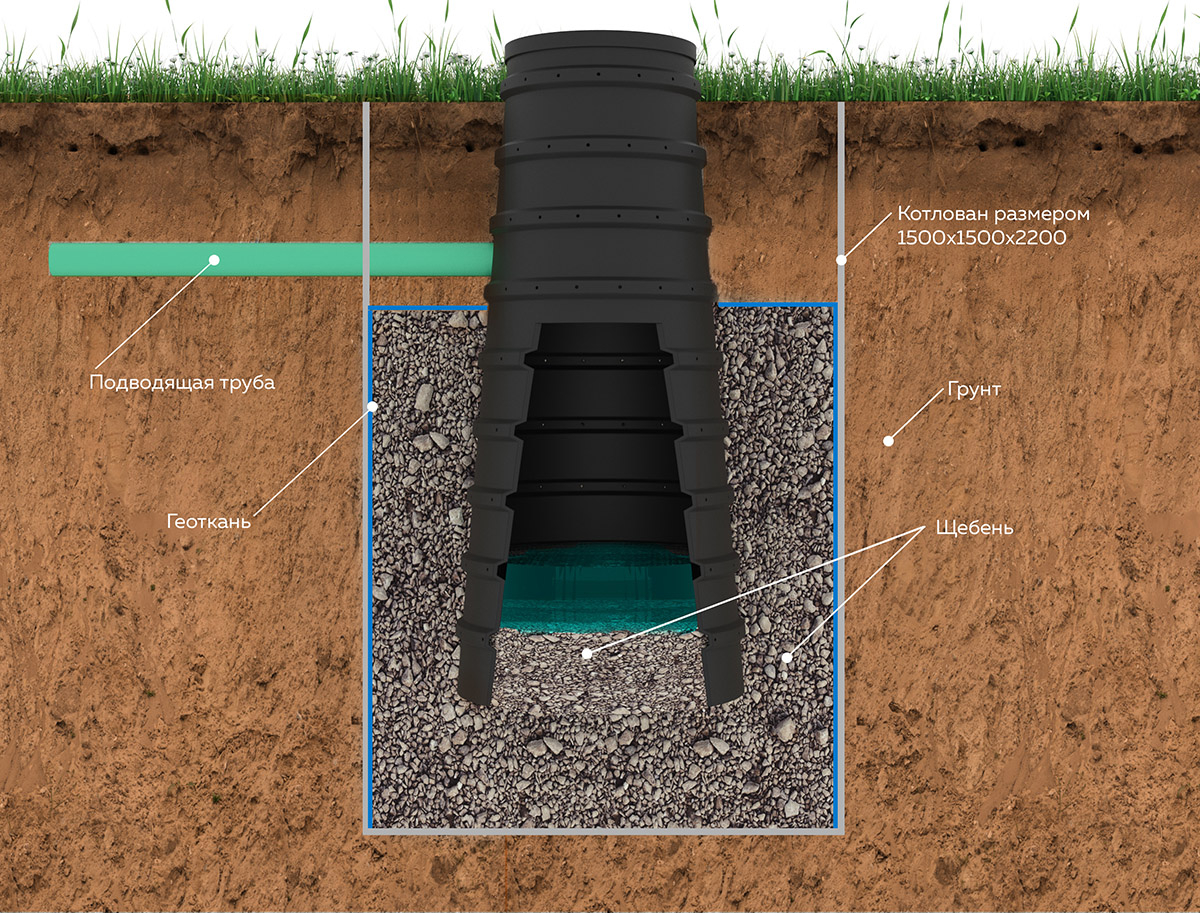A drainage well is a closed element of a wastewater collection and disposal system. It has several functions. This is the cleaning of the entire system from impurities, control over the process of draining wastewater and drying the land in the area where the sewer system is located. There are three types - drainage, rotary, absorption (see on the website). They differ in shape, material of manufacture. The most popular are wells made of plastic. Experts recommend installing them at the turning points of the overall system, as well as every 50 meters.

Varieties and their purpose
It often happens that the system for collecting rain, melt water is not connected to the general sewer system. It is important to install a water intake drainage well.It should be borne in mind that such waters are discharged into ravines or nearby water bodies, so the water cannot be contaminated with harmful impurities.
- Dehumidifying. Such types of wells are installed in places where it is impossible to drain wastewater without impurities, melt and rainwater. Their presence is important in places where water is difficult to drain from the site. This is the close location of groundwater, wetlands and areas where water often stagnates on the surface.
- The rotary well is installed in the sewer system in places where it has corners, turns. Be sure to have a hatch so that you can clean it in case of clogging. The most common are cast (corrugated) wells, which are highly resistant to pressure drops, contact with abrasive and chemical impurities. Corrugation quickly reacts to changes in the environment. For example, ground settlement or traffic, which leads to ground vibrations. Therefore, such a corrugated system is able to dampen any vibrations.
- Absorption drainage wells are more often installed on private plots or not far from it. The bottom of such a well is covered with gravel of large fractions. Due to this, the drains are cleaned, and water penetrates into the soil.
The peculiarity of drainage wells is that they can be quickly converted into a water filtration system, which is later used as a technical one. It is used for watering, filling pools or decorative reservoirs, ponds. This is important if the system does not have a connection to a public sewer.
Did the article help you?
